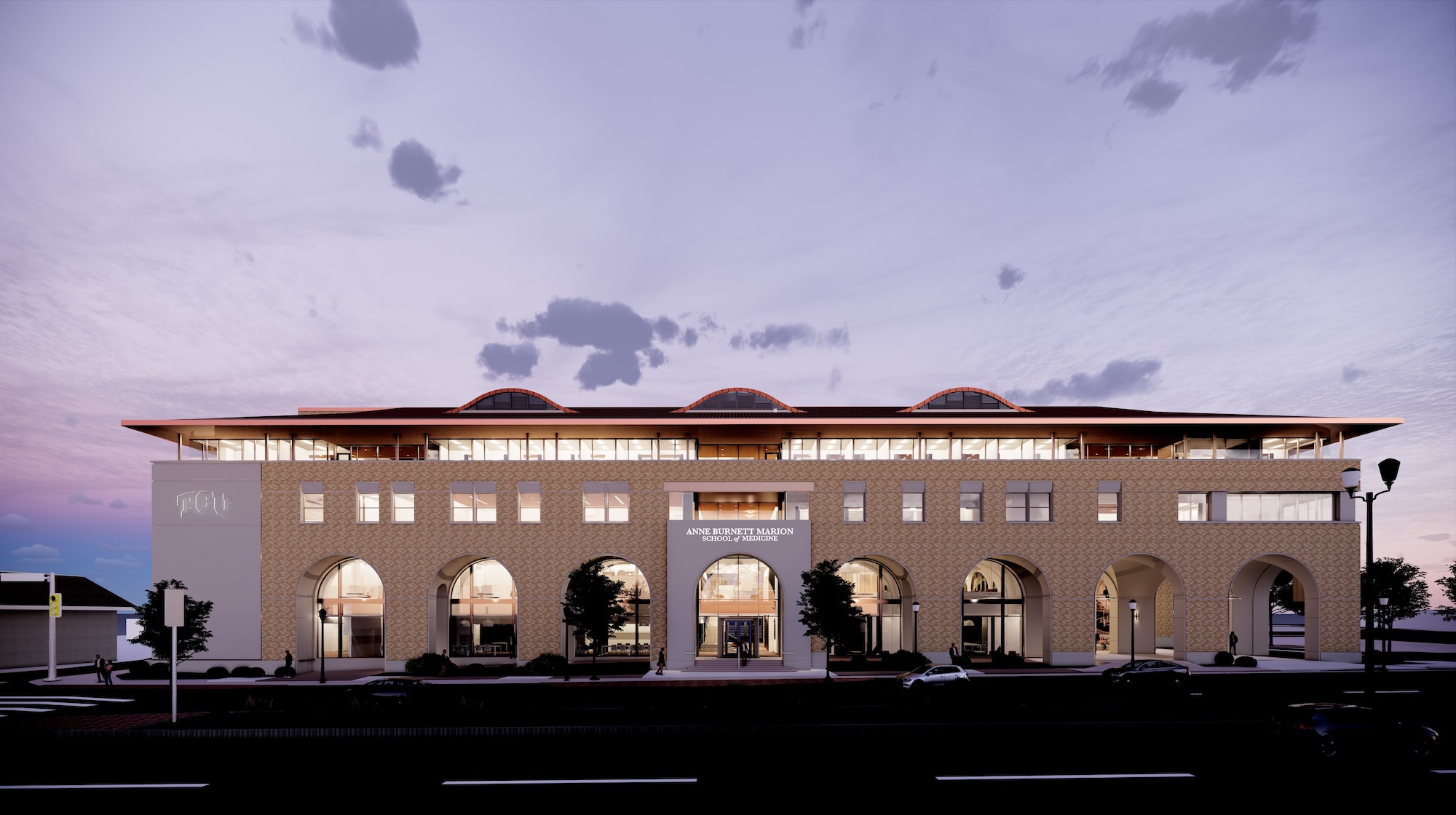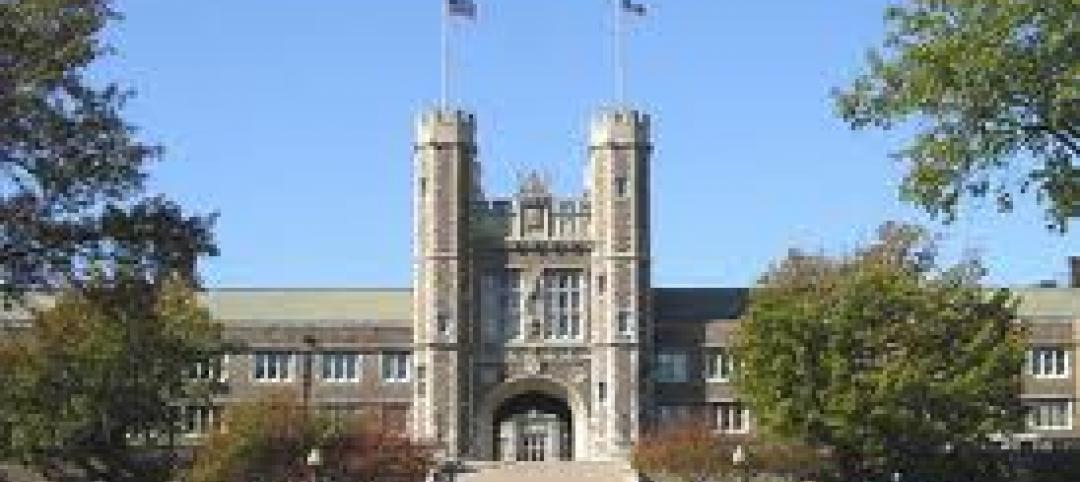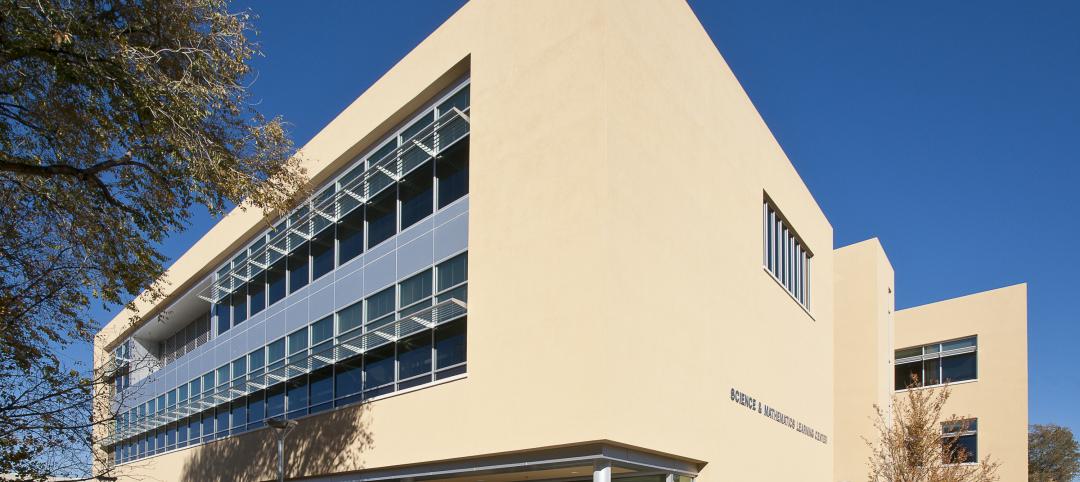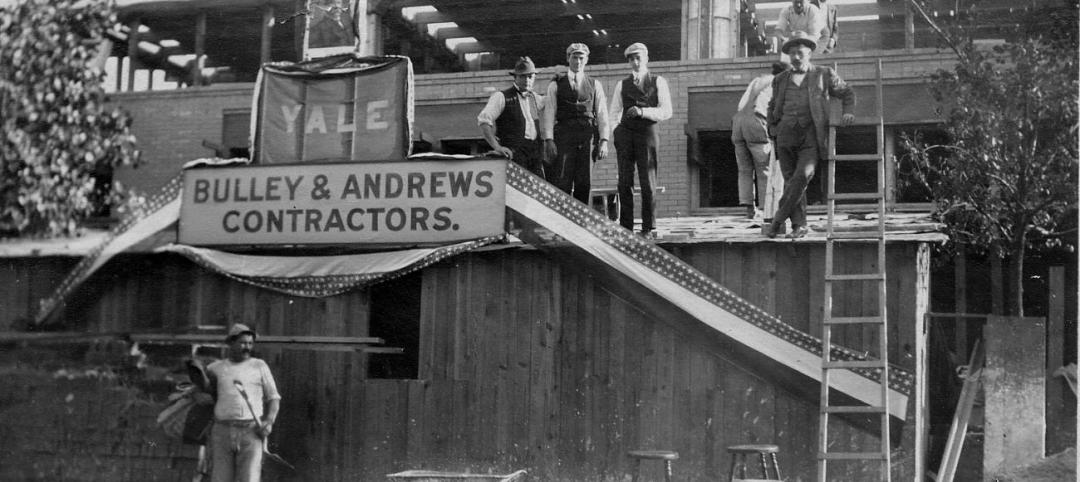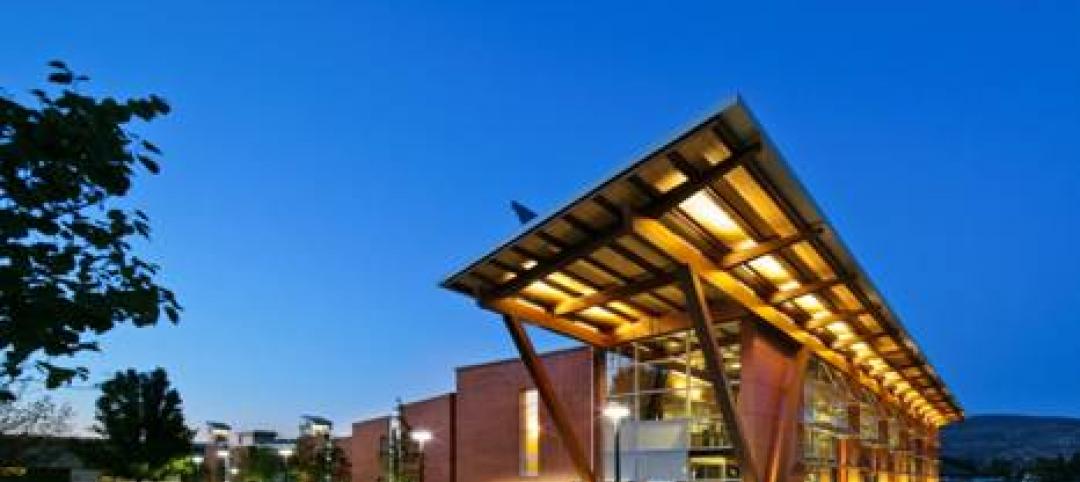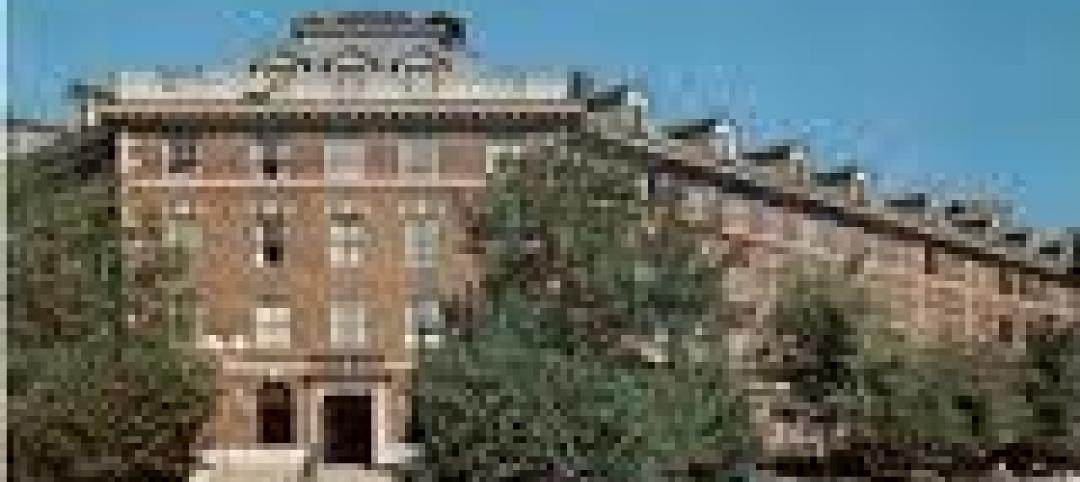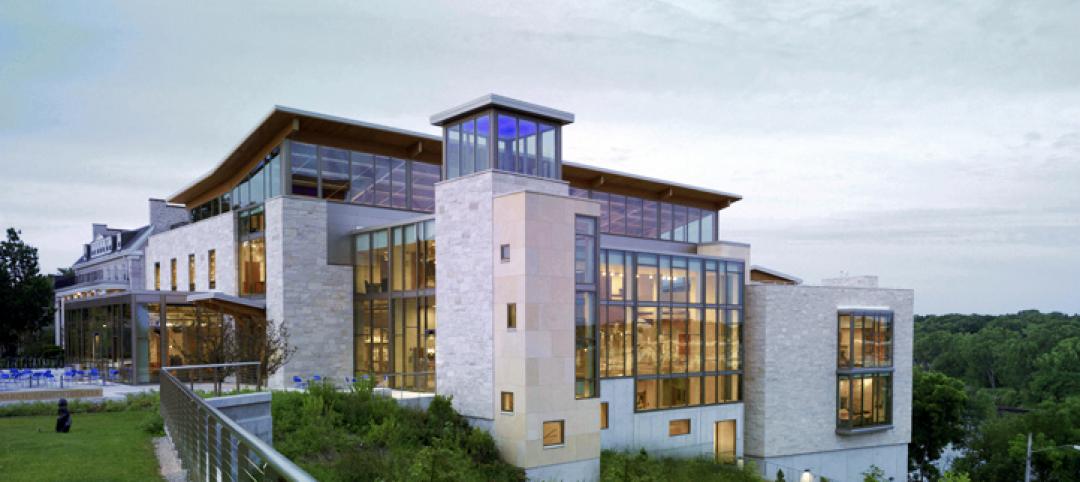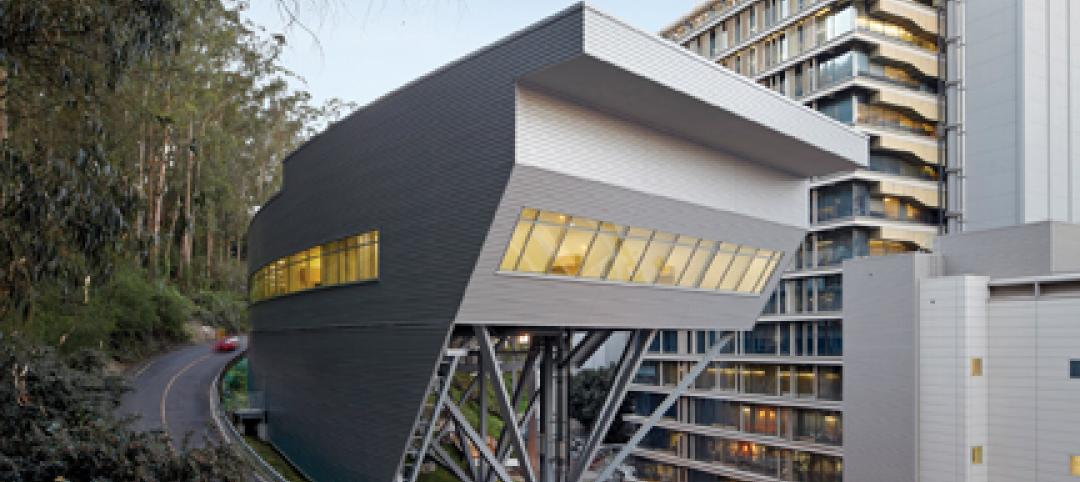Texas Christian University (TCU) has broken ground on the Anne Burnett Marion School of Medicine, which aims to help meet the expanding medical needs of the growing Dallas-Fort Worth region.
When it opens in summer 2024, the Burnett School of Medicine will train 240 medical students to become what TCU calls Empathetic Scholars: compassionate physicians who are excellent communicators and have the ability to walk in patients’ shoes, while also exceling in innovative medicine and evolving medical knowledge. Hundreds of faculty and staff members also will work at the school, which will be located in Fort Worth’s medical innovation district in the Near Southside neighborhood, adjacent to downtown.
Created by Los Angeles-based CO Architects, Hoefer Welker’s Dallas-Fort Worth office, and Texas engineering and landscape architecture firm Dunaway, the 95,000-sf Burnett School of Medicine is part of a 5.3-acre extended campus master plan that will include additional facilities. The Burnett School of Medicine is TCU’s first major off-campus development.
“This new home will enable collaborative learning in team-based classrooms, experiential learning in simulated medical environments, and a meaningful, intimate culture in a wide range of community areas and small-group study spaces,” Jonathan Kanda, principal at CO Architects, said in a statement.
In 2019, the Anne Burnett Marion School of Medicine opened with a class of 60 students. A Fort Worth native, Anne Burnett Marion (1938-2020) was a Texas rancher, philanthropist, and art collector who founded the Georgia O’Keefe Museum in Santa Fe, N.M. She lived in a Fort Worth home designed by architect I.M. Pei.
On the Building Team:
Owner: Texas Christian University
Design architect and medical education specialist: CO Architects
Architect of record: Hoefer Welker
Civil and structural engineer and landscape architect: Dunaway
Building systems engineer: SSR Inc.
Construction management: Linbeck
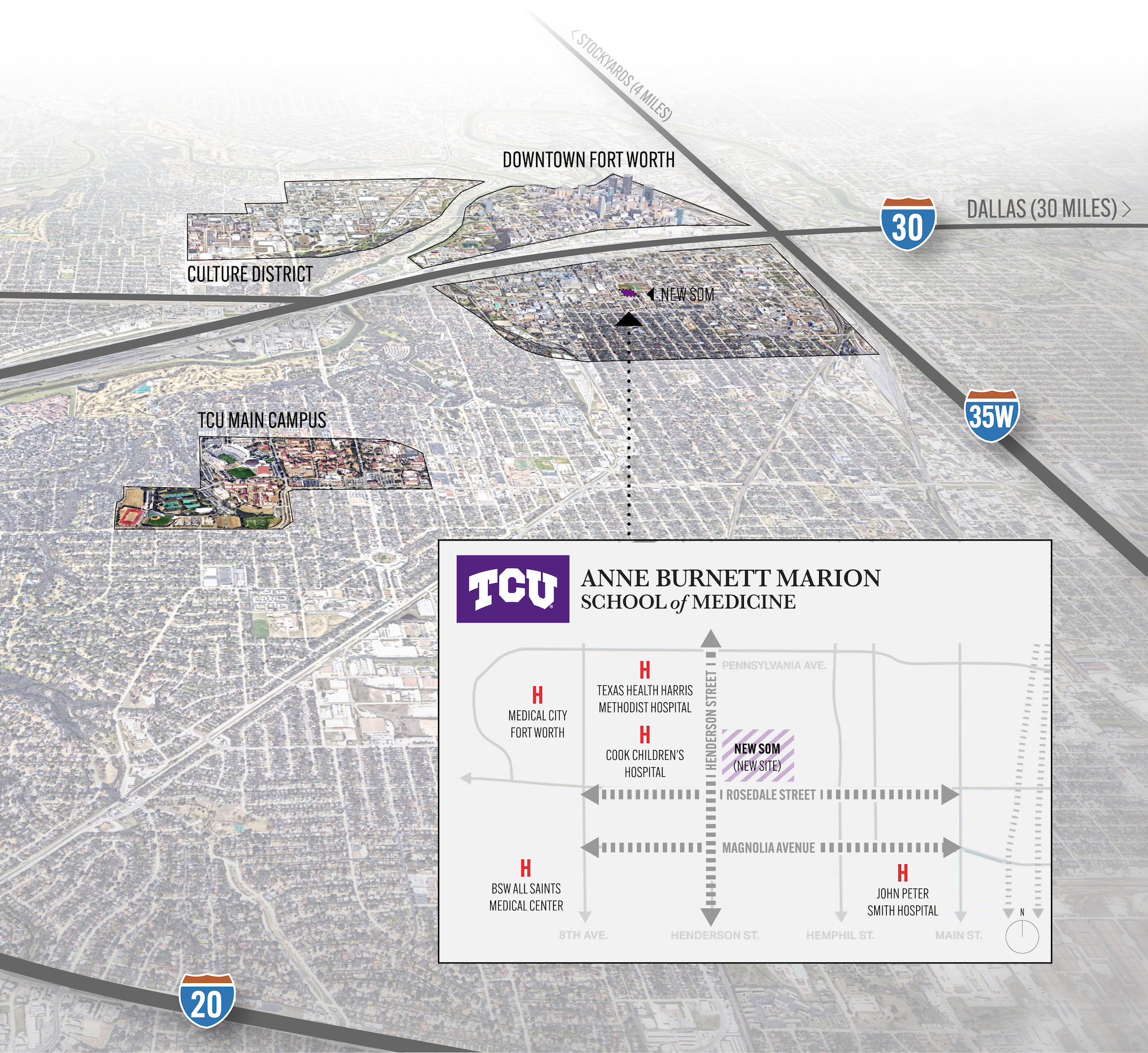
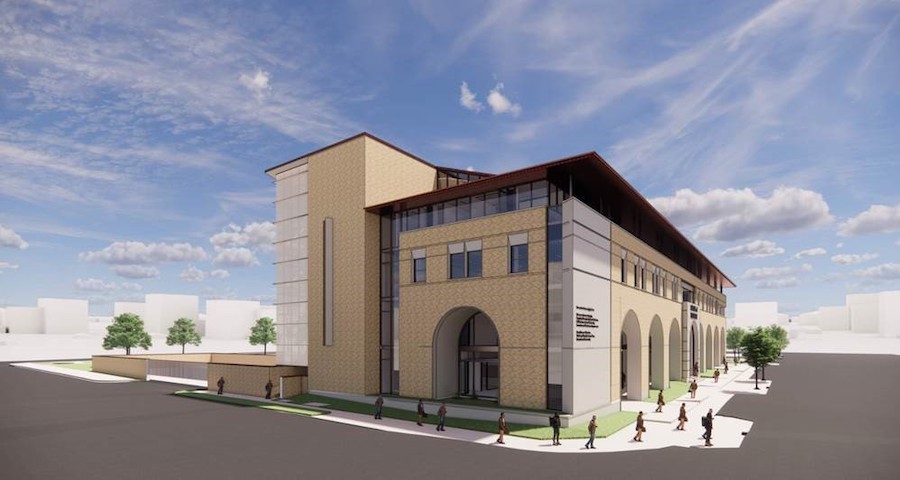
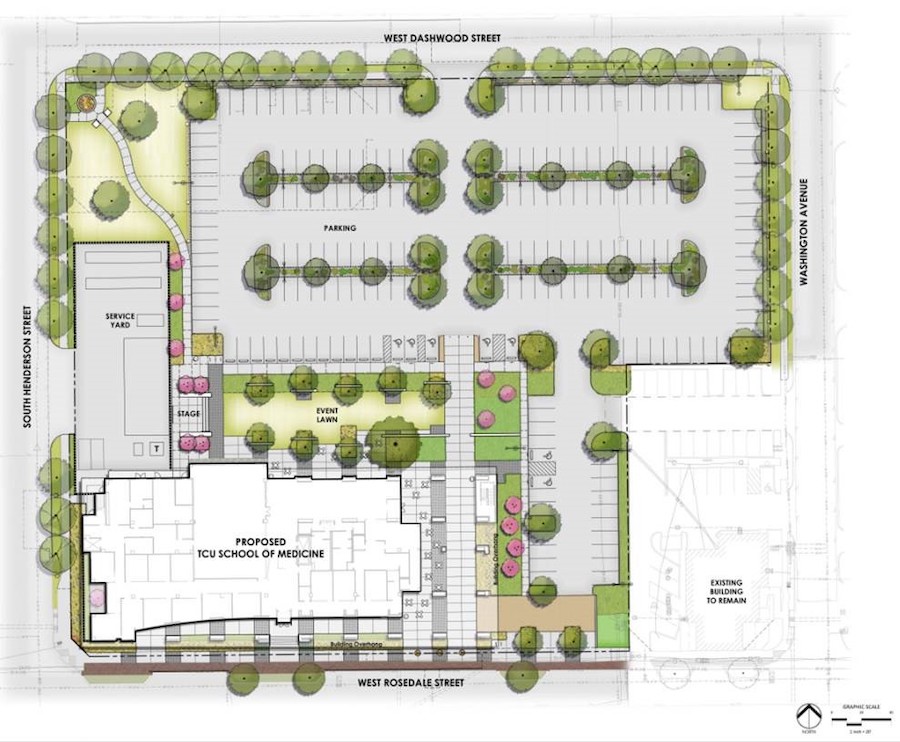
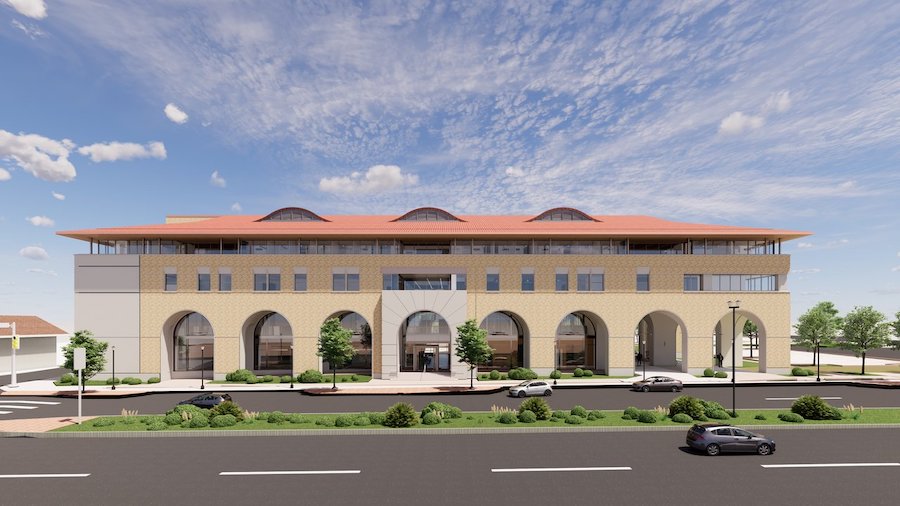
Related Stories
| Oct 17, 2011
Clery Act report reveals community colleges lacking integrated mass notification systems
“Detailed Analysis of U.S. College and University Annual Clery Act Reports” study now available.
| Oct 14, 2011
University of New Mexico Science & Math Learning Center attains LEED for Schools Gold
Van H. Gilbert architects enhances sustainability credentials.
| Oct 12, 2011
Bulley & Andrews celebrates 120 years of construction
The family-owned and operated general contractor attributes this significant milestone to the strong foundation built decades ago on honesty, integrity, and service in construction.
| Sep 30, 2011
Design your own floor program
Program allows users to choose from a variety of flooring and line accent colors to create unique floor designs to complement any athletic facility.
| Sep 23, 2011
Okanagan College sets sights on Living Buildings Challenge
The Living Building Challenge requires projects to meet a stringent list of qualifications, including net-zero energy and water consumption, and address critical environmental, social and economic factors.
| Sep 14, 2011
Research shows large gap in safety focus
82% of public, private and 2-year specialized colleges and universities believe they are not very effective at managing safe and secure openings or identities.
| Sep 7, 2011
KSS Architects wins AIA NJ design award
The project was one of three to win the award in the category of Architectural/Non-Residential.
| May 18, 2011
Major Trends in University Residence Halls
They’re not ‘dorms’ anymore. Today’s collegiate housing facilities are lively, state-of-the-art, and green—and a growing sector for Building Teams to explore.
| May 18, 2011
Raphael Viñoly’s serpentine-shaped building snakes up San Francisco hillside
The hillside location for the Ray and Dagmar Dolby Regeneration Medicine building at the University of California, San Francisco, presented a challenge to the Building Team of Raphael Viñoly, SmithGroup, DPR Construction, and Forell/Elsesser Engineers. The 660-foot-long serpentine-shaped building sits on a structural framework 40 to 70 feet off the ground to accommodate the hillside’s steep 60-degree slope.


